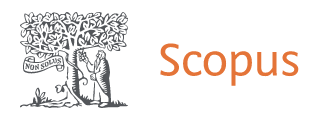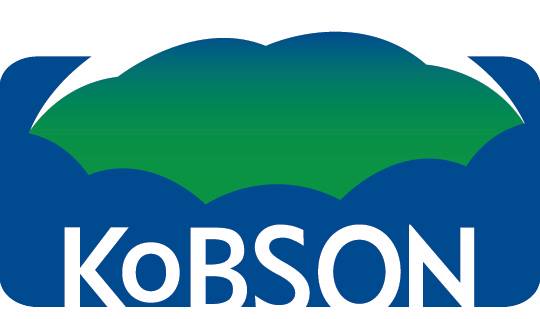DOI: 10.5937/jaes0-26093
This is an open access article distributed under the CC BY 4.0

Volume 19 article 814 pages: 475-482
This study presents a comprehensive review of the improved optimization for powder coating process variables in
mild steel (SPCC-SD). The effective thickness of the dry film thickness (DFT) keeps a significant influence on the
critical protection of mild steel against rust. In the powder coating process, the variable thickness is one of the primary
and difficult objectives to accurately control the desired consistency. This empirical study properly uses RAL
7040 epoxy-polyester with the required thickness between 70-100 microns. This empirical study aims to reasonably
achieve the optimal value of the effective thickness of the powder layer from specific combinations of specified process
criteria. Practical experiments were properly conducted out manipulating an orthogonal Taguchi L16 array of
independent variables; program, distance, application method, and the number of layers. This optimization method
has been successfully upgraded. The average thickness of the powder coating layers reaches 84.85 microns. For
a given limit, the application-method of typically preventing the determined cause correctly examined efficiently provides
the most significant effect on effective thickness with an S/N ratio of 0.91. In the future, the relevant research
may use our corresponding results to improve the powder coating procedure for other significant impacts.
The authors are grateful to Sekolah Tinggi Teknologi
Wastukancana and Universitas Buana Perjuangan Karawang
for financial supported.
1. Du, Zhongyan, et al. The review of powder coatings. Journal of Materials Science and Chemical Engineering, 2016, 4.3: 54-59.
2. Mirabedini, S. M.; Kiamanesh, A. The effect of micro and nano-sized particles on mechanical and adhesion properties of a clear polyester powder coating. Progress in Organic Coatings, 2013, 76.11: 1625- 1632.
3. Hadavand, Behzad Shirkavand; Ataeefard, Maryam; Bafghi, Hamed Fakharizadeh. Preparation of modified nano ZnO/polyester/TGIC powder coating nano¬composite and evaluation of its antibacterial activity. Composites Part B: Engineering, 2015, 82: 190-195.
4. Utech, Bob. A guide to high-performance powder coating. Society of Manufacturing Engineers, 2002.
5. Japanese Standards Association, JIS G 3141 Cold-reduced carbon steel sheets and strip. 2005.
6. Funke, Wi. Problems and progress in organic coat¬ings science and technology. Progress in Organic coatings, 1997, 31.1-2: 5-9.
7. Zouari, Manel, et al. Scratch resistance and tribolog¬ical performance of thermosetting composite powder coatings system: A comparative evaluation. Surface and Coatings Technology, 2015, 263: 27-35.
8. Shinde, Rakesh A.; Patil, Bhushan T.; Joshi, Ketaki N. Optimization of tube hydroforming process (with¬out axial feed) by using FEA simulations. Procedia Technology, 2016, 23: 398-405.
9. Neubauer, Dean. Process Optimization: A Statistical Approach. 2008.
10. Cerea, Matteo, et al. A novel powder coating process for attaining taste masking and moisture protective films applied to tablets. International journal of phar¬maceutics, 2004, 279.1-2: 127-139.
11. Rahul, S. H.; Balasubramanian, K.; Venkatesh, Sri¬ram. Optimizing inkjet printing process to fabricate thick ceramic coatings. Ceramics International, 2017, 43.5: 4513-4519.
12. Haanappel, V. A. C., et al. Optimisation of process¬ing and microstructural parameters of LSM cathodes to improve the electrochemical performance of an¬ode-supported SOFCs. Journal of Power Sources, 2005, 141.2: 216-226.
13. Porter, Stuart; Sackett, Gary; Liu, Lirong. Develop¬ment, optimization, and scale-up of process param¬eters: pan coating. In: Developing solid oral dosage forms. Academic Press, 2017. p. 953-996.
14. Ramlakhan, Michelle, et al. Dry particle coating us¬ing magnetically assisted impaction coating: modifi¬cation of surface properties and optimization of sys¬tem and operating parameters. Powder Technology, 2000, 112.1-2: 137-148.
15. Cahyadi, Christine; Heng, Paul Wan Sia; Chan, Lai Wah. Optimization of process parameters for a qua¬si-continuous tablet coating system using design of experiments. Aaps Pharmscitech, 2011, 12.1: 119- 131.
16. Bose, Sagarika; Bogner, Robin H. Solventless phar¬maceutical coating processes: a review. Pharma¬ceutical development and technology, 2007, 12.2: 115-131.
17. Sivapragash, M., et al. Taguchi based genetic ap¬proach for optimizing the PVD process parameter for coating ZrN on AZ91D magnesium alloy. Materials & Design, 2016, 90: 713-722.
18. Thakur, A. G.; Nandedkar, V. M. Optimization of the resistance spot welding process of galvanized steel sheet using the Taguchi method. Arabian Journal for Science and Engineering, 2014, 39.2: 1171-1176.
19. Mahmud, K. H., Yudistirani, S. A., Ramadhan, A. I.. Analysis Of Hardness Of Material Connection Of Weld On The Effect Of Air Humidity. Interna¬tional Journal of Scientific & Technology Research, 2018,7.2: 90-93.
20. Haidopoulos, M., et al. Development of an optimized electrochemical process for subsequent coating of 316 stainless steel for stent applications. Journal of Materials Science: Materials in Medicine, 2006, 17.7: 647-657.
21. Bose, Sanjukta, et al. Process optimization of ul¬trasonic spray coating of polymer films. Langmuir, 2013, 29.23: 6911-6919.
22. Chiang, Chien-Hung; Tseng, Zong-Liang; Wu, Chun- Guey. Planar heterojunction perovskite/PC 71 BM solar cells with enhanced open-circuit voltage via a (2/1)-step spin-coating process. Journal of Materials Chemistry A, 2014, 2.38: 15897-15903.
23. A. Abdulah, S. Sukarman, C. Anwar, A. Djafar Shied¬dieque, and A. I. Ramadhan, Optimization of yarn texturing process DTY-150D/96F using taguchi method, Technology Report of Kansai University, 2020, 62.4: 1471–1479,.
24. Sukarman, Sukarman, et al. Optimization of Ten¬sile-Shear Strength in the Dissimilar Joint of Zn-Coated Steel and Low Carbon Steel. Automotive Experiences, 2020, 3.3: 115-125.







